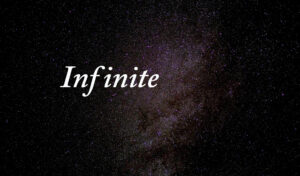Also, what kind of habits or inner attitudes can I cultivate so that reason becomes an active, guiding force in life.
She means governing life with the help of reason, disciplining the vital so that it does not run around like a wild horse pulled by all kinds of impulses. It means being reasonable rather than be driven by fancies and desires. It means moderation and balance so that we exercise some restraint and control over emotions and passions. It is similar to what is advocated in the Gita as Buddhi Yoga. The purpose is to prepare the nature by a kind of sattwic self-culture as this preliminary preparation greatly helps in going beyond our present humanity towards the future superhumanity. Here are two texts of the Mother that are self-explanatory.
‘To be unreasonable? Unfortunately that happens very often!
Is it possible to disregard reason?… It is possible only when you have passed beyond mental activity. It is possible only when you have achieved a surrender, a total giving of yourself. It is possible only when you no longer have any desires. So long as you have desires, have an ego and a will of your own, you cannot give up reason, because, as I said just a moment ago, you would become quite unbalanced and perhaps insane. Therefore reason must be the master until one has gone beyond the state in which it is useful. And as I said, as long as there is an ego and as long as there are desires, and so long as there are impulses and so long as there are passions and preferences, and so long as there are attractions and repulsions, etc., as long as all these things are there, reason is altogether useful.
I shall also add that there is another quite indispensable condition in order not to have recourse to reason any more; that is to open no door, no part of the being to the suggestions of the adverse forces. For if you are not completely liberated from the habit of responding to adverse suggestions, if you give up your reason, you also give up reason itself, that is, common sense. And you begin to act in an incoherent way which may finally become quite unbalanced. Well, to be free from suggestions and adverse influences, you must be exclusively under the influence of the Divine.
Now you see the problem; it is a little difficult. This means that unless you are in the presence of a completely illumined and transformed being, it is always better to advise people to act according to their reason. It is perhaps a limitation—it is in fact a great limitation—but it is also a control and it prevents you from being one of those half-idiots who are far too numerous in the world.
Reason is a very respectable person. Like all respectable people it has its limitations and prejudices, but that does not prevent it from being very useful. And it keeps you from making a fool of yourself. You would do many things if you did not have reason, things which would lead you straight to your ruin and could have extremely unfortunate consequences, for your best means of discernment until you have attained higher levels is reason. When one no longer listens to reason, one can be led into all sorts of absurdities. Naturally, it is neither the ideal nor the summit, it is only a kind of control and a guide for leading a good life, it keeps you from extravagances, excesses, inordinate passions and above all from those impulsive actions which may lead you to the abyss. There you are.
One must be very sure of oneself, quite free from the ego and perfectly surrendered to the divine Will to be able to do safely without reason.
Sometimes it is difficult to distinguish between true and false reasons!
Ah! no, you are playing with words. That word, as you use it here, has altogether another meaning, altogether; they are two very different things. Reason is a faculty of discernment. You are speaking of the reasons you give yourself for doing one thing or another—these are excuses the mind gives itself; but the meaning of the word “reason” is quite different there, it is not the same word at all, though it is pronounced and written in the same way. You can look it up in your dictionary, it will give you two completely different definitions of the word “reason”. The reasons one gives oneself—that is, the excuses or explanations one gives oneself—are always tinged with egoism and a need to delude oneself that one is indeed a reasonable being. Ninety-nine and a half times out of a hundred this is the way to convince oneself that one is very good, what one does is very good, what one feels is very good, what one thinks is very good; it is to give oneself the impression that one is truly quite satisfactory. So, whatever you do, if you begin to reflect a little, you will tell yourself, “But certainly, I did that because it was like that, that’s the real reason; I felt like that, but it was because of this, that’s an excellent reason”—and so on. But that has nothing to do with being reasonable; quite the contrary. It is an excellent means of deceiving oneself and keeping oneself from progressing. It is justifying oneself in one’s own eyes.
Moreover, these are always reasons which whitewash you and blacken others; it is a means of keeping your conscience very comfortable, isn’t it? What happens to you is the fault of circumstances, if you have made a mistake it is the fault of others, if you have a bad reaction it is others who are responsible, etc.; you emerge white as snow from the judgment of your mind.’
‘Usually, unless one has taken good care to make it otherwise, the impulses—the impulses of desire—all the enthusiasms and passions with all their reactions are the masters of human life. One must already be something of a sage to be able to undergo a rigorous discipline of the body and obtain from it the ordered, regular effort which can perfect it. There is no longer any room there for all the fancies of desire. You see, as soon as one gives way to excesses, to immoderation of any kind and a disorderly life, it becomes quite impossible to control one’s body and develop it normally, not to mention that, naturally, one spoils one’s health and as a result the most important part of the ideal of a perfect body disappears; for with bad health, impaired health, one is not much good for anything. And it is certainly the satisfaction of desires and impulses of the vital or the unreasonable demands of certain ambitions which make the body suffer and fall ill.
Naturally, there is all the ignorance of those who don’t even know the most elementary rules of life; but everybody knows one must learn how to live and, for instance, that fire burns and water can drown! People don’t need to be told all that, it is something they learn fast as they grow up; but the fact that the control of reason over life is absolutely indispensable even for good health, is not always accepted by the inferior man for whom life has no savour unless he can live out his passions.
I remember a man who came here a very long time ago, to stand as a candidate for the government. It so happened that he was introduced to me because they wanted my opinion of him, and so he asked me questions about the Ashram and the life we lead here, and about what I considered to be an indispensable discipline for life. This man used to smoke the whole day and drank much more than was necessary, and so he complained, you see, that he was often tired and sometimes could not control himself. I told him, “You know, first of all, you must stop smoking and you must stop drinking.” He looked at me with an unbelievable bewilderment and said, “But then, if one doesn’t either smoke or drink, it is not worth living!” I told him, “If you are still at that stage, it is no use saying anything more.”
And this is much more frequent than one thinks. To us it seems absurd, for we have something else which is of course more interesting than smoking and drinking, but for ordinary men the satisfaction of their desires is the very reason for existence. For them it seems to be an affirmation of their independence and their purpose in life. And it is simply a perversion, a deformation which is a denial of the life-instinct, it is an unhealthy interference of thought and vital impulse in physical life. It is an unhealthy impulse which does not usually exist even in animals. In this case, instinct in animals is infinitely more reasonable than human instinct—which, besides, doesn’t exist any more, which has been replaced by a very perverted impulse.
Perversion is a human disease, it occurs only very rarely in animals, and then only in animals which have come close to man and therefore have been contaminated by his perversion.’
The habits that the Mother is speaking here are some basic healthy habits as noted above, inculcating things that are helpful for yoga as well as life in general and getting rid of things that are known to be harmful.
Affectionately,
Alok Da



